Connecting employees to purpose, success, and each other, in light of new expectations
Discover what was discussed in this closed-door executive roundtable that unpacked how to craft employee experiences and a culture of recognition.
Why You Should Care
With the ‘Great Resignation’ upon us, the tide has turned on business leaders.
People are voting with their feet when it comes to their work, putting pressure on organizations to create new reasons to join – or stay.
Connecting your people to a purpose is key, and there is no one-size-fits-all solution.
On Tuesday 26th October 2021, UNLEASH and O.C. Tanner partnered to host a closed-door, exclusive conversation between pioneering HR leaders about how they are transforming their organizations’ employer branding and their rewards and recognition cultures.
The conversation started with some exclusive insights from the O.C Tanner Institute’s hard-hitting research. Gary Beckstrand, VP at O.C. Tanner was able to outline some of the toplines for us and our panel, to kick the session off.
Its 2022 Global Culture Report examines the impact that hybrid workplaces, peak experiences, employee recognition, and our need for connection will have on cultures and business performance.
Insights shared by Gary included its findings that employees with strong connections to their teams, leaders, and organizations are more likely to thrive and do great work. If there is a strong connection to an individual’s team, their leaders, and the organization at large this can equate to some of the following outcomes;
- +71x satisfaction with the employee experience
- +37x satisfaction with their organization’s culture
- +30x production of great work
And in the context of today, these findings are even more resonant. Our context of normalcy has left us, as a result of the pandemic and our cataclysmic shift in working models and ways of getting work done. This has caused great waves of fragmentation and disconnection in the workplace, on a global scale. The impact of this can be seen in phenomena like the “Great Resignation”.
There is clearly a universal need for organizations to be making changes to enable greater connection, enhance a sense of belonging, and provide opportunities for individuals to succeed at a very personal and individualized level.
The equality of recognition
A big foundation of the hour-long discussion with our HR leaders was around the challenge (and efforts to mitigate this challenge) around the equality of recognition within each of their organizations.
One leader noted that organizations can fall into the trap of only recognizing the same employees, potentially because of the opportunities the organization has traditionally created for rewards and recognition moments to take place. They shared with the group that they are making strides in their organization to make recognition less performative but more authentic and genuine, and in turn, hoping this will mean that recognition becomes something that happens in the flow of work and is an opportunity that is open for all, and able to be from anyone.
Another of the group shared their experience of onboarding during the pandemic, and how this presented the pros and cons of remote work and the ability to create recognition moments (or not). As a positive, they saw that remote work technologies (like video calls) had been an enabler of more equal recognition, allowing people to come forward and showcase themselves that may not have normally had the opportunity to do so. But, on the flip side, they shared the struggles they have found in onboarding colleagues remotely and working out how to get them engaged and to feel the purpose and mission in the new job when they’re sitting at the kitchen counter.
Some of the other solutions workshopped through during the session, was the idea of organizations creating safe spaces to build confidence and encouraging the voices from multiple, diverse employees to come to the fore. By understanding what true workplace happiness means for a variety of employees, and what psychological safety means to them, the group discussed, can enable employers to truly get to know their people. Once you begin to have this understanding, you can then work to create more inclusive experiences and moments of recognition.
Great work requires connection and flexibility
We know from studies, like O.C Tanner’s that if organizations acknowledge their people’s contributions – uniquely – the business will reap the benefits of better engagement and retention, reduce isolation and reduce burnout, to name a few.
The group discussed their experiences of seeing the impacts of solidifying a stronger culture of recognition within their own organizations. One HR leader in the group, coming from a healthcare organization, had witnessed severe competition for talent in the industry. They had experienced employees suffering dire burnout, and the organization at scale was struggling to retain and engage staff – especially in the midst of the pandemic. However, she considered that due to the mission-driven nature of their culture and what this means for their people’s self-value and engagement in the job, they’ve been able to more or less get back into full swing, recruiting back to their mean range of around 60-100 people per week.
This experience demonstrates what has been witnessed in so many other industries across the world, and how important it is to encourage employees and truly make them feel valued and like they are contributing to the wider mission and cultural values of the organization. It might not be enough to hand out praise if it’s not tied back to that bigger goal and intentional outcome.
Solutions: Fun, not frivolous
Each one of our HR leaders, whilst sharing the types of programs and strategies they have for recognition within their unique organizations, made it clear they have lots of layers under the umbrella of rewards and recognition. Whilst some discussed some of the more “obvious” types of rewards and recognition, sometimes referred to in industry as “perks” – things like gift vouchers, snack boxes, monetary rewards for example – they also shared other solutions and tools they’re using to demonstrate recognition throughout their organizations.
From childcare programs to mentorship programs, to ‘Employee Talent Halls’, through to having specific days dedicated to employees doing what they want to do, or an environment where they aren’t always working from a specific timezone to be more inclusive and recognize the global spread of their employees there is clearly an eclectic mix of how employers want to show to their employees that they’re recognized and valued.
What was common throughout, was the use of technology to support recognition initiatives too. Most in the discussion, were using messaging platforms like Teams, Slack, Yammer to share ‘Kudos’ and celebrate great work. Equally, many shared their use of ‘All-Hands’ meetings to share praise, utilizing tools like Slido and Blueboard too.
The group agreed, whilst it’s important to have a mix of a formal recognition program, and definitely helpful if this is synced to a performance management platform, it’s vital to have recognition moments and offerings that are fun, but not frivolous. Employees need to, again, feel part of that bigger organizational mission and culture, and to feel seen and heard and valued.
Remaining challenges:
Whilst the group we spoke to were clearly making leaps and bounds in their recognition strategies, there’s clearly a long way for them all to go until they feel happy in their approach. Some of the remaining challenges they still had included:
- How to configure a recognition strategy that is suitable for workers in different locations, whether that’s hybrid or remote or in the office, or whether that’s by geography. And what about recognition for offline employees – recognition can’t just rely on technology?
- How to formalize and progress efforts for coaching leaders within the organization to share the same value towards recognition and to buy into the efforts to make stronger connections with their teams. This was also deepened when the group evaluated how to recognize employees that a manager may only see once a month, or less
- Understanding who their employees are was of clear importance to the whole group we had on the roundtable, and although they’re all making great strides to understand their workforce more, none of our leaders seemed to be happy with where they are currently with this progress – perhaps there’s always more that can be done?
Clearly, connecting your people to a purpose is key, but there is no one-size-fits-all solution. Measuring and recognizing when employees do great work, in the moment, in the flow of work, seems like a great starting point though.
The O.C. Tanner Insitute shares, they have found “Empirical evidence that a causal relationship exists between peer recognition and connection. Specifically, we conducted an experiment that demonstrates employees who are recognized for extra effort are more likely to feel a stronger connection, help their colleagues succeed again, and, ultimately, produce great work. Equally enlightening, recognition that includes both a public and monetary (points-based) component proves to be far more effective.”
Why join an UNLEASH Roundtable?
Amid the current disruption, HR leaders need to get ahead of the exponential trend where work, technology and how work gets done have changed forever. But how should we approach the relevant questions, given the radical uncertainty we continue to face as the pandemic becomes more protracted than anyone imagined? Our exclusive Virtual Roundtables are designed to explore where business leaders are focused now, key challenges and prioritization for the rest of the year, and what matters most in planning for what’s next.
How to take part:
Apply to get a seat at this exciting UNLEASH Roundtable today. Please note that all attendees are screened. Your company name will be shared with other participants to help us create the most useful discussion possible.
Apply now:
Sign up to the UNLEASH Newsletter
Get the Editor’s picks of the week delivered straight to your inbox!

Head of UNLEASH Labs
Abigail is dedicated to connecting HR buyers with the technology and tools they need to succeed.
Contact Us
"*" indicates required fields
Partner with UNLEASH
"*" indicates required fields

